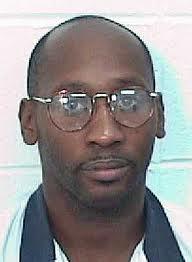A reasonable doubt
Sept. 20, 2011
ATLANTA – Georgia State University College of Law Professors Anne Emanuel and Russell Covey are among a growing number of legal experts who say witnesses’ recantations and allegations of police coercion have undermined the state’s case against Georgia death row inmate Troy Davis, who was convicted of killing a Savannah police officer in 1989 and is scheduled to be executed on Wednesday.
Davis, whose case ignited an international campaign to save his life, lost what appeared to be his last attempt to avoid death by lethal injection when the Georgia State Board of Pardons and Paroles ruled on Tuesday morning that he should die for killing Mark MacPhail.
Because Georgia's governor has no power to stay executions, the parole board was Davis' last hope.
"I don't see any avenues to the Supreme Court," Emanuel told The New York Times' Kim Severson on Tuesday. "There's nothing else apparent."
Covey, whose research focuses on criminal law and procedure, spoke last week to The Huffington Post about the Davis case.
“The record is shredded," said Covey, the author of numerous articles on topics including the death penalty, police interrogation, crime and popular culture, jury selection, and plea bargaining. "What was presented to that jury is no longer valid evidence.”
“The identifications are really incredibly tainted,” Emanuel, a death penalty expert, said in the same article.
Emanuel also noted the prosecutors' reliance on two hearsay confessions at the original trial, including one allegedly given by Davis to a cellmate shortly after his arrest. Both confessions were later recanted by the witnesses in affidavits.
"At the original trial, you've got very dubious eyewitness identifications and a lot of hearsay," said Emanuel, who from 2004-2006 served as chair of Georgia's ABA Death Penalty Moratorium Implementation Committee. "It's appalling for a death case."
 A recent article in The Christian Science Monitor explained that with a preponderance of new evidence, the Davis case is challenging evolving views on whether those who have been sentenced to death in U.S. courts are guilty or innocent. At the forefront, staff writer Patrik Jonsson wrote, is the chasm that exists between the legal power of an initial conviction – when the burden of proof is on the prosecution and reasonable doubt is sufficient for acquittal – and the subsequent doubts raised from new evidence introduced during a convict's journey to the execution chamber.
A recent article in The Christian Science Monitor explained that with a preponderance of new evidence, the Davis case is challenging evolving views on whether those who have been sentenced to death in U.S. courts are guilty or innocent. At the forefront, staff writer Patrik Jonsson wrote, is the chasm that exists between the legal power of an initial conviction – when the burden of proof is on the prosecution and reasonable doubt is sufficient for acquittal – and the subsequent doubts raised from new evidence introduced during a convict's journey to the execution chamber.
“Davis has had to show by clear and convincing evidence that he's innocent,” Covey said in the article, “which is very different from having to raise a reasonable doubt about his guilt.”
The Georgia clemency board heard testimony Monday on whether there's enough new evidence to show that Davis did not shoot and kill MacPhail. Hundreds of vigils and protests have been held in recent days around the country, and more than 663,000 signatures were collected on Davis' behalf.
The federal appeals system has turned the case over numerous times without changing the verdict, most recently when a federal court judge dismissed Davis's claim of innocence in 2010, Jonsson wrote in The Christian Science Monitor. At the same time, seven of nine witnesses have changed or recanted their original testimony, with some saying they were pressured by police to finger Davis.
A 2007 test has repudiated the ballistics evidence relied on by the state at the original trial. In an Amnesty International documentary, which includes interviews with both Emanuel and Covey, a juror in the case said that had she known then what she knows now, Davis would not be awaiting his execution.
Some of those who have called for clemency say they're not convinced of Davis' innocence, Jonsson wrote. But they are convinced that the level of doubt about his guilt has risen to a point where executing him will be a serious injustice, and would only further cast doubt on the U.S. death penalty system around the world.
“When you put [the new evidence together],” Covey told Jonsson, “it seems to be pretty clear that no jury, if presented with that information today, could conceivably find guilt beyond a reasonable doubt.”
Contact:
Wendy Cromwell
Director of Communications
404.413.9050